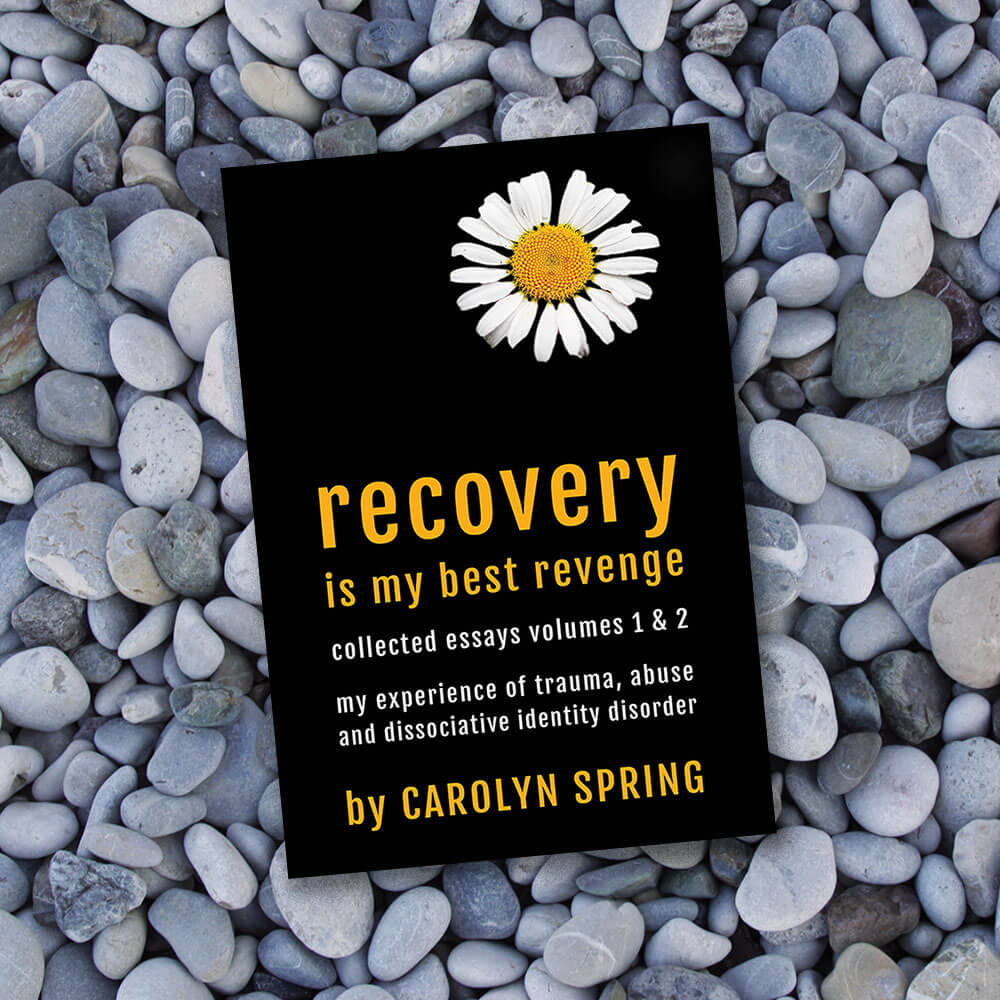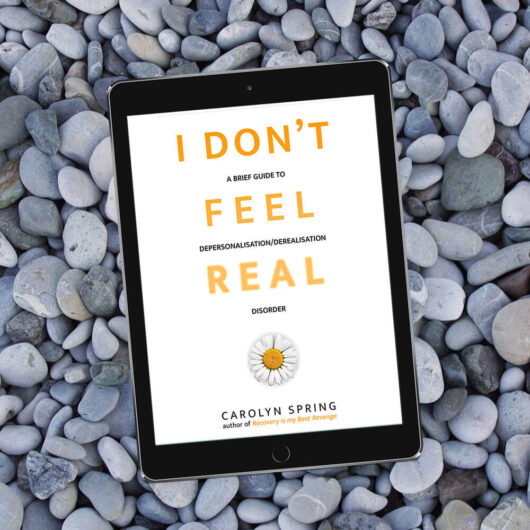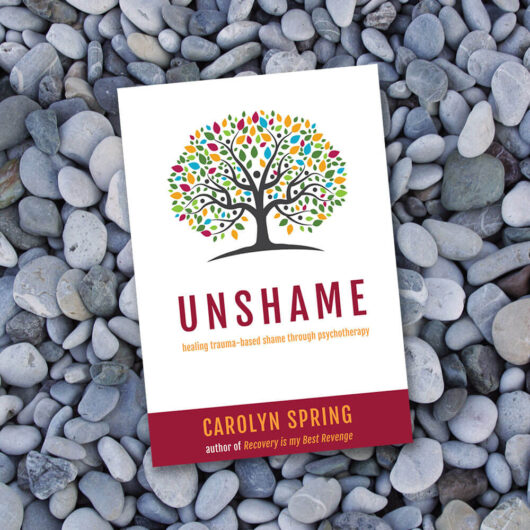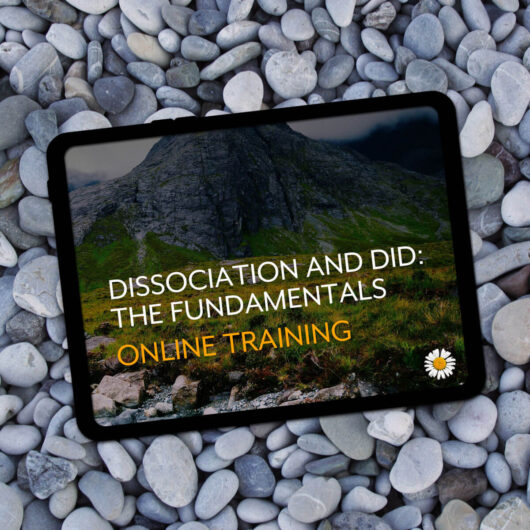What is it like to live with dissociative identity disorder? How does the brain respond to chronic, extreme trauma? Is recovery possible from such suffering?
Here I write about my experience of living with trauma-related dissociation and my journey towards recovery.
“Breathtaking. Unique, beautiful, utterly heartbreaking but full of real, genuine, earthy hope. I would recommend this to anyone who is part of the human race.”
“Courageous and educational. I would recommend this book to anyone wanting to understand the long journey back from abuse, for revovering survivors and therapists alike. Thank you Carolyn.”
“An amazing book. I could not put this down. Her writing style is accomplished and positive, and the subject is moving. Each chapter can stand alone but is also part of a coherent whole.The author has a lived experience of trauma and dissociation but this is more than an emotional narrative, it’s a lived experience of how to move forward. It has given me encouragement, confidence and direction as a therapist.”
“A powerful, insightful read. Carolyn’s honest, brave, intelligent and poetically written essays about living with and recovering from DID are a real gift. I read it from cover to cover, and then began all over again.”
“Superbly helpful. This book is excellent both as a resource for professionals and a helpful aid to accompany those recovering from trauma, from someone who has pieced their life back together. It’s been one of the most helpful books for myself as someone recovering with DID to see so much of my confusion mirrored and explained and then reassured with options and working strategies.”
“Inspiring. This book was both interesting and inspirational in both content and subject matter. Having heard the author teach, I can vouch for her eloquence as much in writing now as in her spoken word. Her message is one to be spread. Her experiences and journey of self-awareness and acceptance give others hope and therapists a unique insight into trauma work.”
“Beautiful. Such poignancy and elegantly written, an inspiration to recovery, its journey and what that can look like. Thank you – it’s great to feel connected and seen.”
“Inspires hope. Beautifully and intelligently written, giving hope and optimism for the future for all trauma survivors, and a must read for therapists.”
“Excellent. This is an amazing account and glimpse into the world of someone who suffers with dissociative identity disorder as a result of extreme childhood trauma and the recovery process. Excellently written, poignant, challenging at times. Wonderful insight into the therapeutic process from the client’s perspective. I have gained so much from reading this. Highly recommended.”
What is it like to live with dissociative identity disorder? How does the brain respond to chronic, extreme trauma? Is recovery possible from such suffering?
Suffering child sexual abuse from an early age, my mind coped the only way it knew how: by pushing the knowledge of that abuse out of conscious awareness. It’s a trick of the mind known as dissociation, and it meant that I was able to continue with ‘normal’ life, completely unaware by day of what had been happening by night. But this survival strategy came at a cost: I experienced a fragmented sense of self, a constant sense of disconnection from the world and my own emotions, and persistent and unremitting ill health. But my interpretation was that I was simply ‘bad’ and ‘mad’. I didn’t know that my brain was protecting me. I didn’t know that all of my symptoms were perfectly logical in the light of what had happened to me.
Then in my early thirties I suffered a catastrophic mental breakdown. My mind couldn’t keep up the pretence any longer. Previously dissociated memories came back with a vengeance – and so did the dissociated parts of my personality.
In this combined first and second volumes of my collected essays, I write about my experience of living with trauma-related dissociation, and my journey towards recovery through ten years of psychotherapy.
I cover topics such as shame, denial, child sexual abuse, the complex meanings of ‘madness’ and the multi-layered subjective experience of a dissociative mind. It is a series of standalone chapters or essays which build on one another to provide not only a unique insight into trauma, attachment and dissociation, but also the long and arduous – but ultimately fulfilling – recovery journey.
Preview now
Publisher: Carolyn Spring Publishing; 1st edition (1 Mar. 2016)
ISBN: 978-0992961930
Pages: 180



